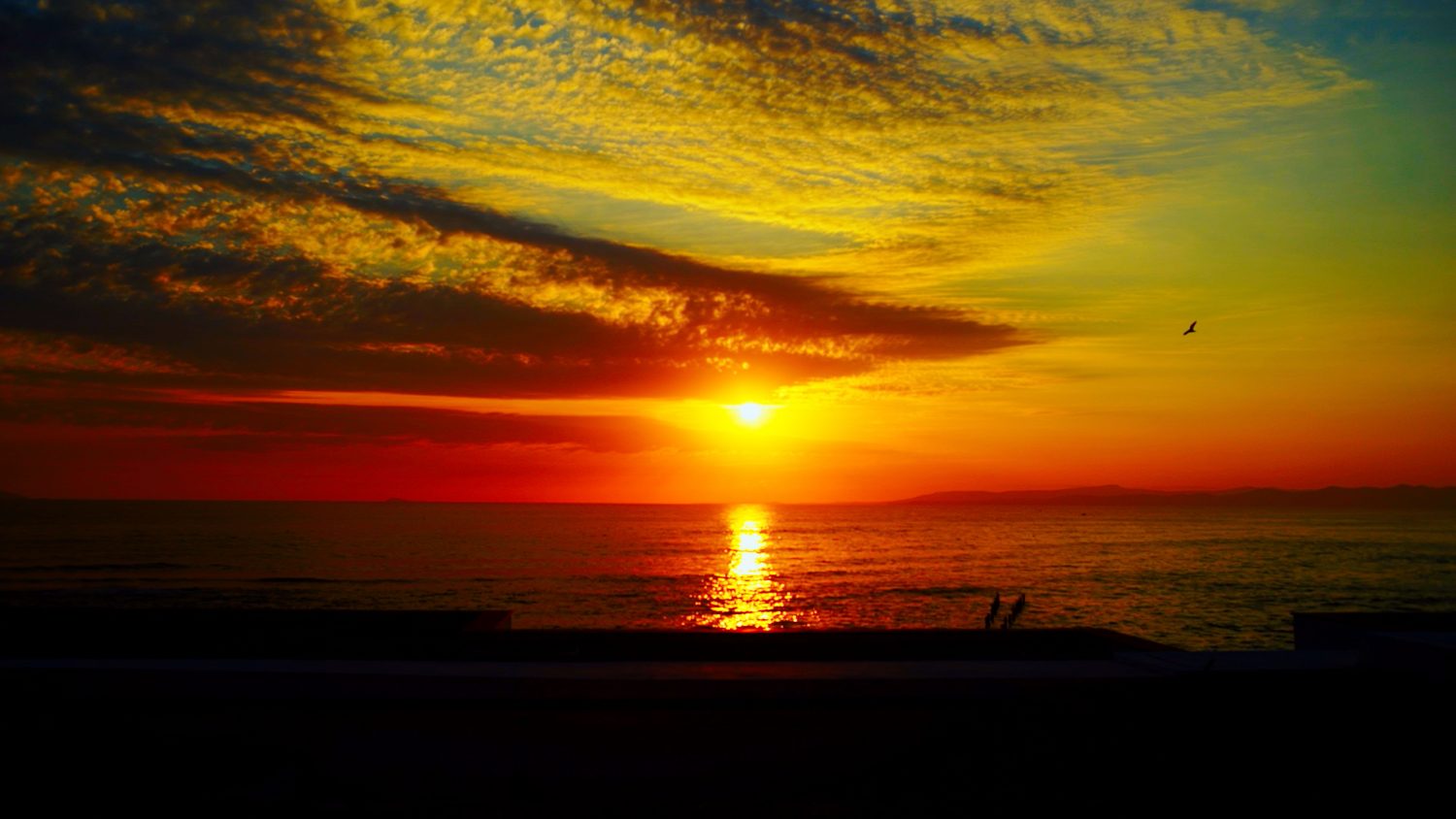
Dir.: Jean-Luc Godard in collaboration with Fabrice Aragno, Jean-Paul Battagia, Nicole Brenez; France/Switzerland 2018, 85 min.
Returning to Cannes this May, and eventually winning a Special Palme d’Or with The Image Book, Jean-Luc Godard was as brazen as usual: a portrait of the artist as an iconoclast, but not in the historical sense. JLG, true to form, throws thousands of images at us, just as he’s always done. In very mutated forms – enigmatically connected, their meaning further ambiguously enhanced by free associative texts. It was announced that some of the images would travel the big cities of the globe as an installation. ~Having done away with actors, Godard decided to rely on images – his own as well as others. This event will now happen in cinemas, before an army of academics and JLG acolytes take over the diatribe.
The good news first: The Image Book is much more accessible than say Film Socialisme, it gives the audience a chance to put at least some strains together – depending on how many years one has spent in the cinema and the library, appraising his work. Before the onslaught of images, most of the film clips get away in the original form, the rest is colour distorted, saturated, over- or under exposed, played at the ‘wrong’ speed or an impaired rhythm. Godard reminds us that we think with two hands. The sounds are in discordance, distorted and often violently cut off, or altogether removed – all this to the music of Bach, Schnittke, Scott Walker, Prokofiev (Eisenstein’s Ivan the Terrible) among others. The clips of films, TV, mobile, newsreel and artwork are released in stunning tempo, underlined by Godard’s rasping voice plus a heavy cough attack. In the chapter ‘Remake’, he uses his own material as well others for a new message: a mix of fictional and real live killings. This is followed by a sequence of train features (always interrupted by Holocaust images) as a form of cinematic representations, starting with ‘The Arrival of a Train at La Ciotat’ by the Lumiere Brothers. Then we jump to Europe just after the end of WWII, with Munk’s Eroica and Jerzy Kawalerowicz’ Night Train, and a long clip from Jacques Tourneur’s Berlin Express where the new order in Europe is established by the nominative travellers of the Four Powers.
Trying to be particularly clever, JLG quotes Dostojewski “The Warsaw train was approaching St. Petersburg”. Before we return to Europe, a short-list of features quoted: Johnny Guitar, Kiss me Deadly, The Beauty and the Beast, Vertigo and Gus van Sant’s Elephant. In Europe, JLG opines “the actions of the government cannot be separated from the actions of the citizens”. What he means is that Europeans have reduced the power of emotion by becoming a consumer society, and by killing the real meaning of language, with advertising. And there is the ever-recurring Faust question: JLG accusing Europeans of all wanting to be Kings, rather than Faust. Also spotted is a book of poems by Godard’s partner Anne-Marie Miéville, and excerpts of Hollis Frampton’s Means of Survival. The majority of clips and texts passed me by, so I long for a second, or even third viewing – just to ‘get with the programme’.
ISIS executions are scattered around The Image Book. Also in the last chapter about the Arab world, entitled ‘Joyful Arabia’ from an Alexandre Dumas novel, and with quotes by Albert Cossey: Ambition in the Desert, Godard shows the false dawn of the Arab Spring and other violent episodes – besides just the ISIS cruelties. In the end JLG quotes Max Ophuls’s Le Plaisir: a man dancing around wildly, until he collapses. Wonder what this is a symbol for, if anything?.
Well then: JLG as an audio-visual poet? A channel surfer of history? A lecturer in free association mode? Perhaps most likely just a painter of images. In a (cinema) world with little or no substance (never mind innovation), the idiosyncratic JLG stands out – for whatever reason. Yes, the huge majority switched off after Weekend – a few newcomers occasionally join the party mainly attended by his acolytes – but it’s a requires stamina to follow the leaders. AS
ON RELEASE on November 30 2018 NATIONWIDE